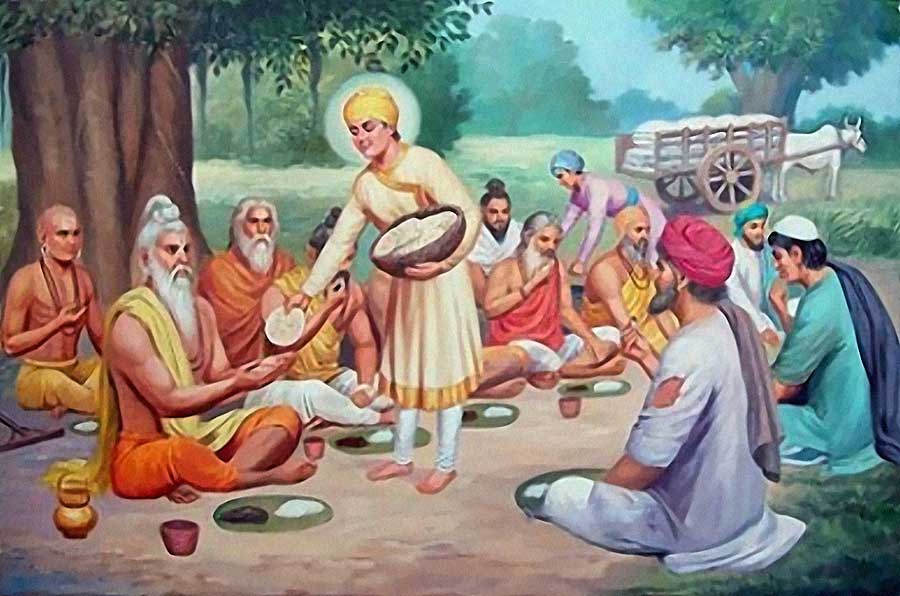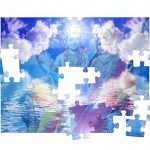If World is Mithya, Why Help Others? – Part 33

We explained in conversation 32 that Advaita Vedanta teachings are not tautology (useless repetitions).
What is Advaita Vedanta? It's a means of knowledge, through words, which reveals the absolute nature of reality.
This reality is not “over there”. Reality is you, right now. Reality is everything, including the experience of reading these words right now.
This recognition is a growing understanding. It's not a one time complete event that happens on one fine Saturday at 3:43pm.
Whatever breakthroughs do occur, they are subject to refinement.
And how else to refine what you know then through words, whether by reading or listening.
In this way, Vedanta repeats the same basic message in myriad ways.
Each Upanishad has a different approach. And each approach helps to further refine your understanding of the One reality which you are.
The student replies, “If the One and I are really one, if the world is an illusion as is my mind and body, all a mere delusion — then according to this logic, I need make no effort since fate is playing her cards, while I remain a pawn in the game of life. In such scheme, where is there a place for reaching out to help other beings? According to Oneness, “others” are only dependent-reals (mithya) also following fate's order. Should I remain indifferent to their suffering? Should I dismiss everyone's suffering as mere product of cause-and-effect, which I have no place to intervene?”.
” We have explained at length, the world is not an illusion.
World is ontologically mithya, a dependent-reality, depending on it's cause for existence.
The cause and effect are never separate. The chair (effect) and wood (cause) are the one whole.
Therefore we cannot use the knowledge to abandon our responsibilities.
Even after the chair shifts its understanding from “I am chair” to “I am the wood appearing or in form of a chair” – it still has a duty to serve at least until it breaks.
Suppose entire world was made of wood. It would indeed be cowardly for chair to make up excuses to stop serving people's need to sit on it. Because the people are the very same wood which is also the chair. So where is the chance of abandoning responsibilities.
And responsibility comes from the fact that every human is endowed with the greatest gift; ability to choose every moment to act, not act or act in a different manner.
Furthermore, whatever choice we decide, it can only be successful if it's within the limits of universal human values such as truth, harmony and non-violence.
To demonstrate this, take a drug dealer. No matter how careful, how many tunnels they dig, there is constant fear being found, and eventually they are.
You simply can't go against nature's laws because you're not separate from them. See how long a lie can be kept before it's narrative becomes a thorny burden to carry.
Assuming actions are adhering within the framework of harmony as illustrated above; actions also include your personal duties. Their performance ensures the rights of others.
For example, an innocent guest at a social event may not have the courage to standup for him or herself upon unfair treatment. So you need to discover what role you play in the scenario to ensure fair treatment is due.
The easiest and least intelligent thing would be to dismiss it with, “Let someone else fix it. It's not my problem!”.
A duty-based society is definitely non-violent and conforms best to the universal order.
A society which has drifted away from duty to pursue self-gratification, inevitably collapses.
For example the Roman Empire, the most powerful in human history; where is this self-gratifying oriented Empire today? Where are its kings who reveled in their delusionary eternal glory?
Point being, drifting away from duty, truth, harmony and non-violence — guarantees eventual self-destruction.
Ultimately, it's up to the individual to act according to his or her abilities, feelings and sensibilities — which are part of the psychological order. Specifically the desire to help and feel for other's mishaps.
Compassion is the hallmark of all thinking persons.
Even the most insensitive one feels a twinge of conscience and emotion at others' pain and suffering.
This is the way of the human heart, reflecting the One's compassion, it's unconditional love and care.
Once I know the truth of myself – I am the self of all selves, I am Limitless-Existence-Consciousness.
There is no “other” to oppose or limit.
Therefore how can there be indifference and hatred since the “I” is all that exists.
“I” is in fact the most beloved of each and every individual.
Every desire, every action, every need to possess is only for our sake.
Even a husband who says he is bringing the bread for family sake, is actually for his own sake.
If family is happy, then husband is happy.
To love another person is for your own sake, not theirs. I love another, so I can feel love within myself, which feels good to me.
Although due to self-ignorance — we think only the body and mind is “I”.
Once we know the truth of our self as the One Limitless Being, the self of all selves, how can we remain indifferent?
There can only be love and compassion for everybody.
There is no further need to acquire objects, persons and situations to fulfill ourselves.
Free from discontent and life of constant becoming, we can give ourselves completely without reserve, without a need to gain and withhold.
Knowing we are Limitless whole, we reach out to others from the fullness of our self. “






You’re doing great work Andre. Thank you ??
Most welcome.